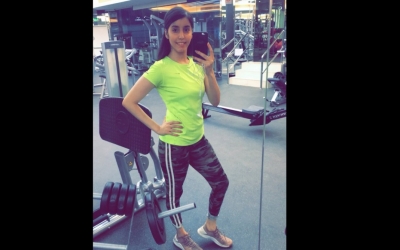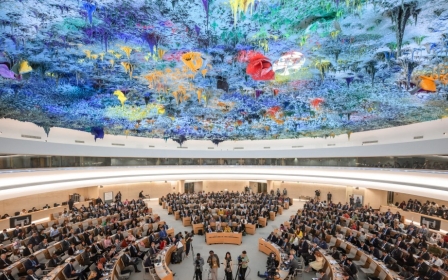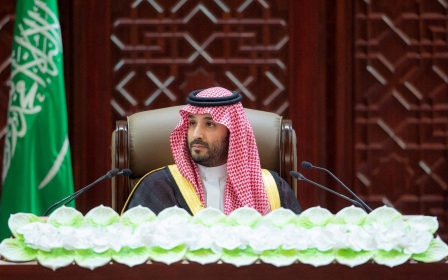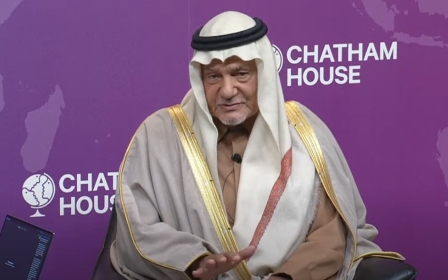Saudi Arabia sentences prominent artist Mohamed al-Hazzaa to 23 years in jail
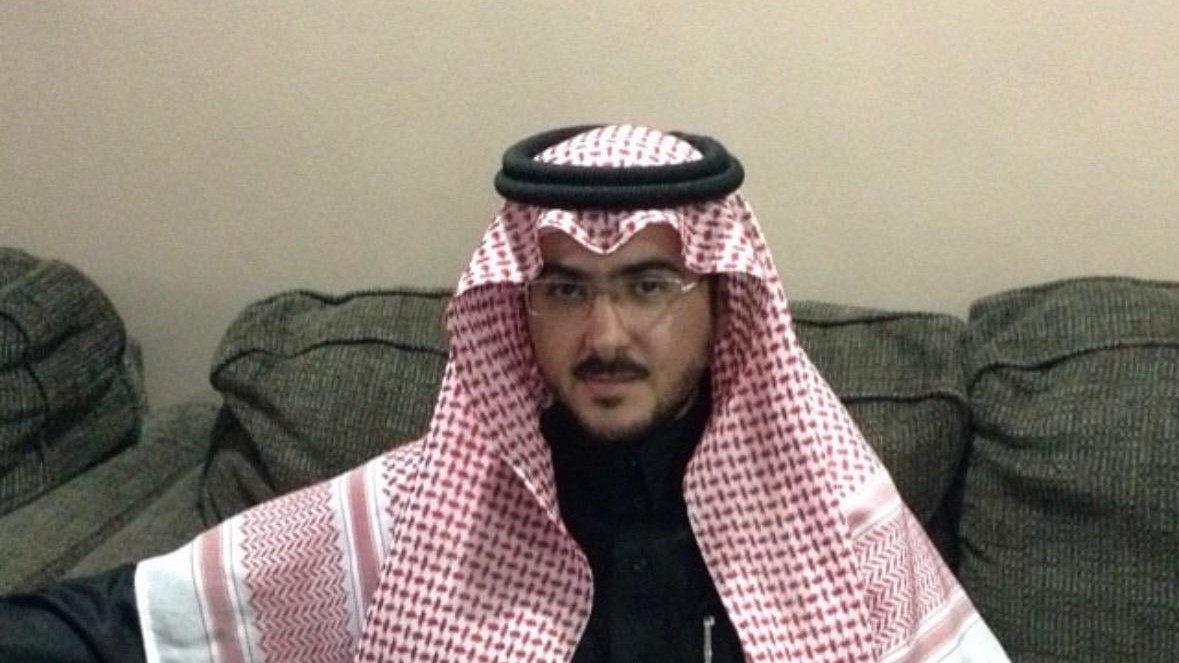
Saudi Arabia has sentenced artist Mohamed Ahmed al-Hazzaa al-Ghamdi (known professionally as Mohamed al-Hazzaa) to 23 years in prison over caricatures published by a Qatari newspaper during the rift between Riyadh and Doha seven years ago.
Al-Hazzaa, 48, had been a freelance caricaturist before his detention in February 2018.
He worked for the Qatari newspaper Lusail during the Saudi-led blockade on Qatar, which lasted between 2017 and 2021.
But Al-Hazzaa had ceased his contribution to the paper before his arrest in 2018, according to information revealed by Sanad, a London-based rights group.
Sanad, which shared details about the case with Middle East Eye, said he was initially sentenced to six years in prison by the Specialised Criminal Court, a sentence he completed this year.
New MEE newsletter: Jerusalem Dispatch
Sign up to get the latest insights and analysis on Israel-Palestine, alongside Turkey Unpacked and other MEE newsletters
He was initially sentenced in July 2021, by which time he had already been detained for more than three years. However he was not released at the end of this sentence.
The case against him was reopened in December 2023, resulting in a 23-year sentence that cannot be appealed, according to Sanad. No lawyer was present at any of the court sessions.
He is currently held in Dhahban Central Prison in Jeddah.
According to Sanad, al-Hazzaa was under surveillance by an undercover informant before his arrest in February 2018.
While travelling to a wedding in Jeddah from his hometown of Al-Baha prior to his detention, an informant sat next to him on the plane, the group said in a briefing about the case.
Upon his return from Jeddah, security forces, led by the same informant, detained him from a cafe where he was sitting with a friend, Sanad said, without specifying the exact dates.
Then they raided his home, confiscated his belongings, and ransacked his studio without a legal search warrant.
The raid caused significant distress for his pregnant wife and one of his children who was present, the group added.
100 drawings
Al-Hazzaa contributed to Lusail for one year after the Gulf diplomatic crisis erupted, expecting it to end, according to Sanad. But when the blockade continued, he stopped his work.
Middle East Eye contacted Lusail newspaper for comment.
Al-Hazzaa's caricatures, which he also published on his Instagram page, included humorous depictions of Saudi characters, with comments mocking the country's economic and social conditions. It was celebrated by Saudi media, including in a lengthy interview with the Rotana channel that showed samples of artwork.
'The case of Mohammed al-Hazzaa is one example of the suppression of freedom of expression in Saudi Arabia, which has not spared anyone, including artists'
- Samer Alshumrani, Sanad
When reconciliation took place between the Saudi-led coalition and Qatar in 2021, al-Hazzaa’s family was hopeful about his release.
The charges faced by al-Hazzaa include alleged sympathy for Qatar and claims that he published 100 drawings that insulted the kingdom.
The evidence brought against him during court hearings in July 2021 also included tweets that Qatar did not deserve the severing of diplomatic ties, as well as communicating with dissidents and following opposition accounts on X (formerly Twitter).
The Specialised Criminal Court (SCC) which sentenced the artist is a notorious judicial body introduced after Mohammed bin Salman became crown prince and de facto ruler of the kingdom in 2017.
Saudi human rights defenders and lawyers have accused Bin Salman of overseeing a crackdown on freedom of expression since he came to power, including the introduction of the SCC and a counterterrorism law that Human Rights Watch has criticised for its broad definition of terrorism.
Two new bodies used to suppress activists - the Presidency of State Security and the Public Prosecution Office - were established by royal decrees in the same year.
“The Saudi regime continues its systematic repression and violations of human rights." Samer Alshumrani, Sanad's operations manager told MEE. "The case of Mohammed al-Hazzaa is one example of the suppression of freedom of expression in Saudi Arabia, which has not spared anyone, including artists."
'Fabricated evidence'
Al-Hazzaa denied the accusations that his drawings were offensive to Saudi Arabia. All the caricatures used as evidence were from his time at Lusail, not after the diplomatic crisis, he told prosecutors.
When Al-Hazzaa requested proof that any of his artwork insulted the Saudi government, the prosecution failed to provide any. He also said some of the evidence was fabricated, and that he had no drawings suggesting that Qatar did not deserve the blockade as alleged.
“Sanad asserts that even if this were proven, it would not constitute a crime but would fall under legally protected freedom of expression,” the rights group said.
During court hearings in 2021, al-Hazzaa pointed out that the ruling falsely labelled Qatar as an “adversarial state”, despite the normalisation of relations between Doha and Riyadh at the time of the alleged offences, and at the time of the court verdict in July 2021. The verdict came after the appointment of a Qatari ambassador in June that year, and the restoration of diplomatic relations in January 2021.
Al-Hazzaa was convicted despite the court’s admission that the evidence was insufficient to prove an insult to Saudi Arabia, Sanad said.
According to Sanad, al-Hazzaa has faced many human rights abuses since his detention, including being forcibly disappeared for months, restrictions on family visits, degrading treatment and medical neglect.
He suffered from diabetes prior to his detention, but his health has deteriorated because of medical neglect, Sanad said.
Al-Hazzaa is the father of five children, the youngest born after his detention.
Middle East Eye has contacted the Saudi government for comment.
Middle East Eye delivers independent and unrivalled coverage and analysis of the Middle East, North Africa and beyond. To learn more about republishing this content and the associated fees, please fill out this form. More about MEE can be found here.


